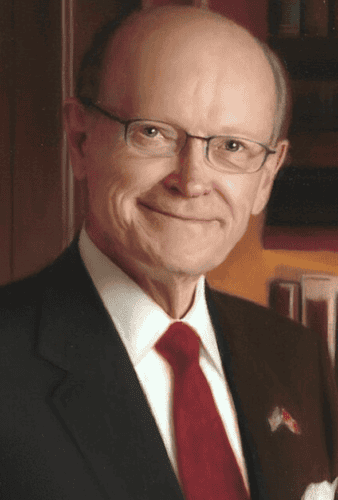The other day, I read about the passing of Donald E. Peterson, who was a key CEO for Ford Motor Company in the 1980s (from 1985 to 1990).
From the Detroit Free Press:
Former Ford CEO Don Petersen, who spent 41 years with automaker, dies at 97
From that article:
“He was a real change agent at Ford,” said industry analyst John McElroy, host of “Autoline After Hours” webcast and podcast. “Don Petersen brought W. Edwards Deming into Ford, the guru of gurus of quality experts, and that had a transformational impact on Ford's quality.”
That said, CEOs to follow, including current CEO Jim Farley, have faced quality challenges, even after defects were reduced 66% at Ford during the 80s.
Again, from the article, the Deming influence is clear:
“Petersen would talk about the need to “drive fear out of an organization,” McElroy recalled, adding Peterson felt “management cannot treat itself as superior to the lowest person on the assembly line. You have to treat them as equals.”
That sounds like what Toyota calls “respect for people.”
Petersen worked to change a culture that had a long, troubled history:
“Workers, quite simply, were afraid of offending their bosses… their subordinates were expected to display loyalty to the chief,” the Los Angeles Times wrote in a profile of Petersen in 1996.”
Petersen realized that teamwork and helping people feel safe speaking up were the keys to success. That was true in the 1980s and even more true today. Today, we'd use language about “psychological safety” and breaking down silos.
Embed from Getty ImagesDeming's Mention of Petersen
I could only find one reference to Petersen in Dr. Deming's books. From Out of the Crisis:
Leadership instead of the annual rating at Ford. The foregoing principles became clear a few years ago to Donald E. Petersen, now Chief Executive Officer of the Ford Motor Company. Ford's changes will be a powerful signal to all Western industry that at least one big company is vitally concerned about the company's most important resource, viz., the people that work there. The main reason to make the change is to remove an important inhibitor to the company's program of continual improvement of quality and productivity.
Deming, of course, advocated for eliminating the annual performance review and substituting that with leadership and ongoing coaching.
I wonder how far that movement got at Ford. I bet they have traditional or typical annual reviews today? I'd be curious to learn more about that history.
From Other Obituaries and Remembrances
The WSJ reported on his death and career:
Donald E. Petersen, Who Boosted Quality at Ford Motor, Dies at Age 97
“Along with doing the obvious by cutting costs, Petersen brought in the quality consultant W. Edwards Deming, then in his 80s, who had long been revered in Japan and ignored in his homeland, the U.S. The strategy for quality control shifted from spotting defects in finished cars to designing and making them right in the first place.”
Petersen is quoted as saying:
“Managing only for profits is like playing tennis with your eye on the scoreboard, and not on the ball.”
The WSJ emphasized Petersen's emphasis on shifting from a “dictatorial” culture “into one based on a freer exchange of ideas.”
After retiring as CEO, Petersen was on the board of Boeing where he met Alan Mullaly, who later became CEO of Ford.
“They found Ford and Boeing faced similar challenges.”
And how many of those challenges does Boeing face today?
Petersen didn't like the culture, considered quitting many times, but stuck with it:
“He joined Ford in 1949 and helped create a planning department. “I was introduced into an environment that was largely run by fear,” he said in A Better Idea, a 1991 book he co-wrote with John Hillkirk. “Life inside the company was typically defined by some head honker of, say, the assembly operations, who would come to work, hat on his head, at 3:30 in the morning. That meant everyone who worked under him had to be there at 3. That kind of boss was absolutely dictatorial.”
I've ordered that book from Amazon as a used, cheap copy. I might blog about the book in the future.
Thankfully, Petersen was exposed to parts of Ford with a better culture:
“In 1971, he was named vice president and general manager of the truck operation. There he found a more-collegial working culture, where “nobody was afraid to speak up.” That experience inspired his later sermons on teamwork.”
I believe strongly that a team or a business unit where nobody is afraid to speak up is a function of leaders and how they behave. It's not because the team has “better” employees who are more courageous or have higher character. Again, it's that feeling of “psychological safety” and how fascinating is it that parts of Ford had that even in 1971.
In Bloomberg's story, Petersen's desire to help others is evident. Some leaders perpetuate the abuse they faced. Thankfully, some leaders want to break that cycle.
“Time and again, Petersen would tell interviewers and audiences he didn't want Ford employees to be subjected to the same abusive treatment that he himself had encountered during his climb up the corporate ladder,” Paul Ingrassia and Joseph B. White wrote in Comeback: The Fall and Rise of the American Automobile Industry (1994).
That's a book that I've read in recent years.
As Forbes shared, nobody is perfect:
“While CEO, Petersen also was a public advocate for a collaborative management style, giving interviews and speeches on the topic. Books published after his tenure, such as 1994's Comeback by Paul Ingrassia and Joseph B. White, depicted Petersen as not practicing what he preached, sometimes engaging in outbursts at subordinates.”
Petersen responded to the reporting:
“No one can live like a saint every day of their lives,” Petersen told the authors, adding he had started cultural change at Ford.
As Ford Authority wrote:
“Looking back, there's no denying the tremendous impact Donald Petersen had on Ford at the time – and in the ensuing years – as he oversaw the transition of the Taurus to a more modern rounded design that set a trend for the entire industry, as well as the launch of the Explorer, which changed the automotive landscape forever by making SUVs more mainstream.”
The company's statement said:
“He insisted on teamwork and excellence in the name of customers and guided Ford through a period of revitalization and intense competition in the global auto industry,” Ford said of Donald Petersen in a statement. “Donald pushed his teams to design and deliver vehicles they'd be proud to park in their own driveways, a standard to which we still hold ourselves.”
Rest in Peace…
Please scroll down (or click) to post a comment. Connect with me on LinkedIn.
Let’s build a culture of continuous improvement and psychological safety—together. If you're a leader aiming for lasting change (not just more projects), I help organizations:
- Engage people at all levels in sustainable improvement
- Shift from fear of mistakes to learning from them
- Apply Lean thinking in practical, people-centered ways
Interested in coaching or a keynote talk? Let’s talk.
Join me for a Lean Healthcare Accelerator Trip to Japan! Learn More










